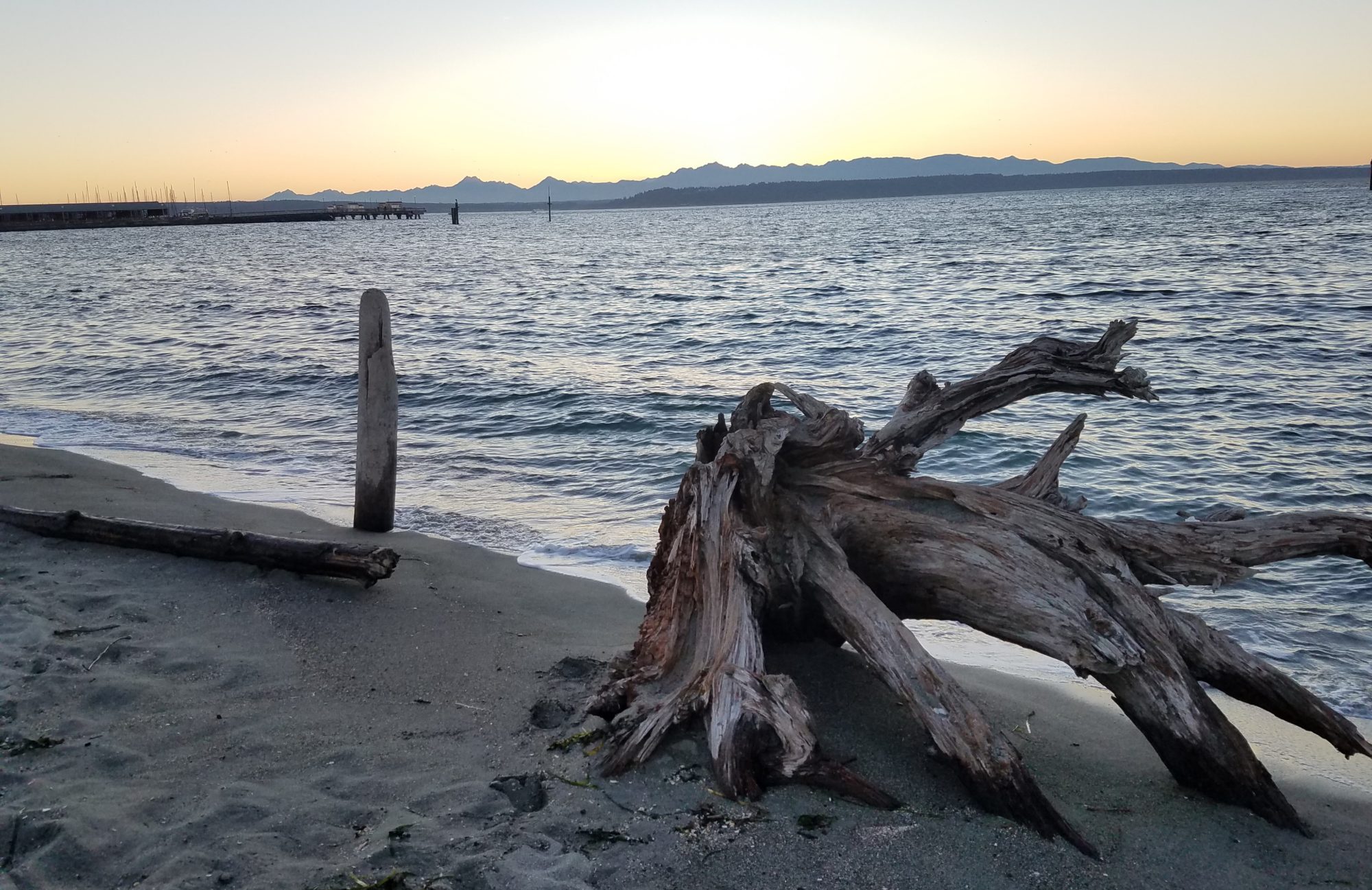This is an auspicious time in many ways. We just had a full harvest moon and a partial eclipse, and even some northern lights. Of course, as is often the case here on the Salish Sea, the view looked a lot like grey clouds… their own beauty of course!
This is a month when my daughter, my father, my mother-in-law, and my ex-wife all have birthdays. And it is very shortly after the birthdays of another daughter and my mother in late August. All but the daughters have passed the veil but it brings them all to mind in these days of transition.
As the cool winds begin to pick leaves from the maples and alder, and the flowers droop and fall away, I am reminded and celebrate the time of elderhood and letting go. The poems below give a wonderful sense of this season.
September by Helen Hunt Jackson
The golden-rod is yellow;
The corn is turning brown;
The trees in apple orchards
With fruit are bending down.
The gentian’s bluest fringes
Are curling in the sun;
In dusty pods the milkweed
Its hidden silk has spun.
The sedges flaunt their harvest,
In every meadow nook;
And asters by the brook-side
Make asters in the brook.
From dewy lanes at morning
the grapes’ sweet odors rise;
At noon the roads all flutter
With yellow butterflies.
By all these lovely tokens
September days are here,
With summer’s best of weather,
And autumn’s best of cheer.
But none of all this beauty
Which floods the earth and air
Is unto me the secret
Which makes September fair.
‘T is a thing which I remember;
To name it thrills me yet:
One day of one September
I never can forget.
A Continual Autumn, by Jalal Al-din Muhammad Rumi
Inside each of us there’s
a continual autumn.
Our leaves fall and are
blown out over the water,
a crow sits in the blackened limbs and
talks about what’s gone.
There’s a necessary dying, and
then we are reborn breathing again.
Very little grows on jagged rock.
Be ground.
Be crumbled
so wildflowers will come up where you are.
Song for Autumn
by Mary Oliver
Don’t you imagine the leaves dream now
how comfortable it will be to touch
the earth instead of the
nothingness of the air and the endless
freshets of wind? And don’t you think
the trees, especially those with
mossy hollows, are beginning to look for
the birds that will come—six, a dozen—to sleep
inside their bodies? And don’t you hear
the goldenrod whispering goodbye,
the everlasting being crowned with the first
tuffets of snow? The pond
stiffens and the white field over which
the fox runs so quickly brings out
its long blue shadows. The wind wags
its many tails. And in the evening
the piled firewood shifts a little,
longing to be on its way.
Winter Apple by David Whyte
Let the apple ripen
on the branch
beyond your need
to take it down
Let the coolness
of autumn
and the breathing,
blowing wind
test its adherence
to endurance,
let the others fall.
Wait longer
than you would,
go against yourself,
find the pale nobility
of quiet that ripening
demands…
